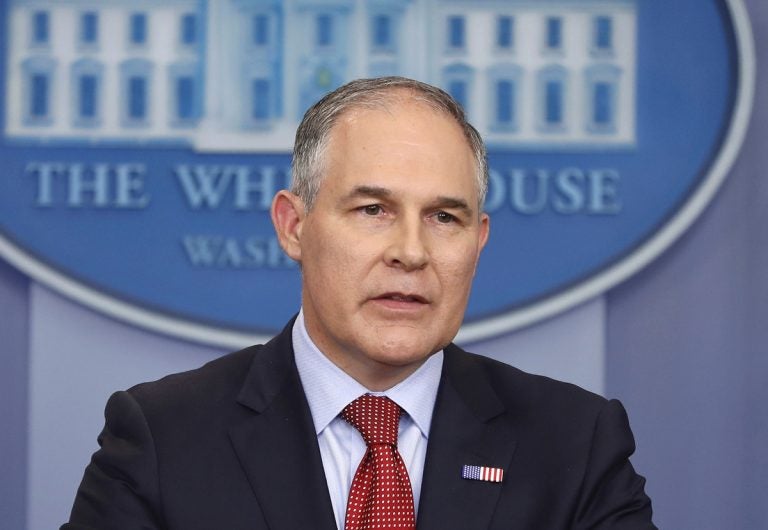EPA bars scientists with agency funding from advisory boards
The Environmental Protection Agency's Administrator, Scott Pruitt, has issued a new policy restricting who can serve on the agency's advisory boards.

In this June 2, 2017 file photo, Environmental Protection Agency administrator Scott Pruitt speaks in the Brady Press Briefing Room of the White House in Washington. (Pablo Martinez Monsivais/AP Photo, file)
Environmental Protection Agency Administrator Scott Pruitt has issued new rules barring people with EPA funding from serving on the agency’s advisory committees.
The federal committees’ job is to review the most current science on a given issue and provide guidance to the EPA as the agency develops regulations. The committees look at everything from air quality to toxic chemicals.
Administrator Pruitt said the goal is to attract independent members and avoid conflicts of interest; enhance geographic diversity; increase participation by local and tribal governments; and “promote fresh perspectives.”
In a press release, Pruitt said, “Whatever science comes out of EPA, shouldn’t be political science. From this day forward, EPA advisory committee members will be financially independent from the Agency.”
Ana Diez Roux, an epidemiologist and dean of Drexel University’s school of public health, says excluding people with EPA grants is unusual criteria to maintain objectivity. She chaired the Clean Air Scientific Advisory Committee until about a month ago, when her term ended.
“We already have very clear conflict of interest rules for how these committees operate,” Roux said. “There’s really no evidence or even credible rationale for the argument that scientists who have received or are receiving federal grants are somehow biased in the advice that they are providing EPA. In fact, many times these are the most qualified scientists.”
Advisors go through ethics training and fill out financial disclosure forms to avoid conflicts of interest.
Critics say the move is intended to get more industry representatives on the boards.
Roux will be replaced by Paul Gilman, an executive at a waste-to-energy company in New Jersey.
WHYY is your source for fact-based, in-depth journalism and information. As a nonprofit organization, we rely on financial support from readers like you. Please give today.




